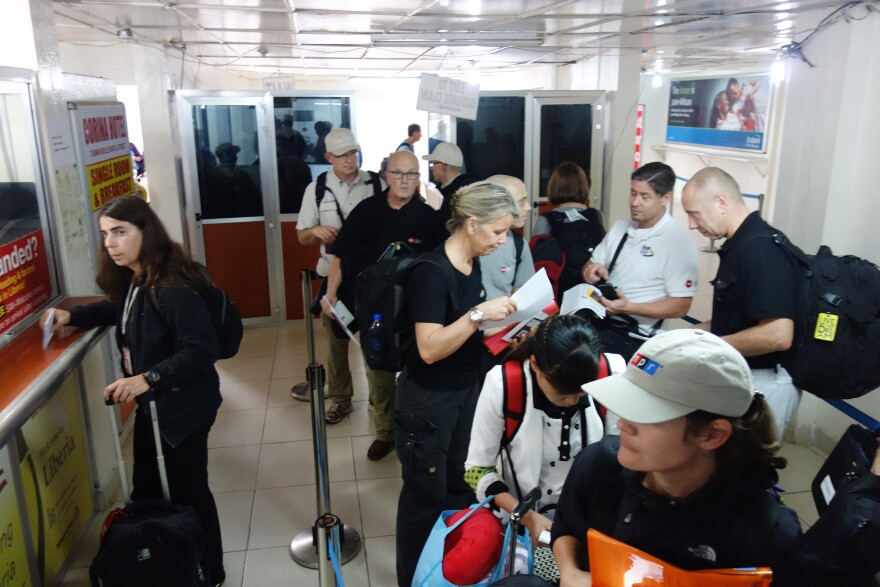
Flying into the epicenter of the Ebola epidemic is actually anti-climactic.
We landed on Friday night. And by Saturday morning, we realized that people around Monrovia, Liberia, are generally going about their business as usual — they're just washing their hands a lot more and trying not to touch each other.
The city of a million people is now reporting about 30 Ebola cases each day. On the surface, you really wouldn't know there was an epidemic of the world's scariest disease going on, except that every now and then an Ebola ambulance zooms past with its sirens on.
Something that did strike me was who was on the flight from Brussels to Monrovia. It literally was a "plane full of good Samaritans." Almost everyone on board was going to help with the epidemic.
There were dozens of U.S. military personnel, a bunch of medical teams from NGOs and a few guys wearing hats that had "public health" written on them.
The two men sitting next to me were U.S. Army engineers coming to build an Ebola treatment unit in Liberia. One of the guys said he was happy to finally be using his engineering skills to build something instead of just searching for bombs in Iraq and Afghanistan. The other guy agreed, but then said he was a bit concerned about the "invisible enemy."
The three women sitting behind me on the plane were health workers coming to volunteer for Doctors Without Borders. They had taken time off from their jobs for the trip and had just spent four days learning to treat Ebola patients at a mock Ebola treatment center in Brussels.
The best thing they learned? How to take the "space suit" off. You have to put your chin on your chest and pull the suit over the back of your head, one of the doctors from Los Angeles told me. Then the suit never touches your face. Ah! I finally get it.
There was one exception to all these "good Samaritans" on the plane. One guy was a businessman from China. He wasn't concerned at all by Ebola. "Business goes on," he said.
With the third Ebola case reported in the U.S. last week, we've been hearing so much about shutting down commercial flights to and from West Africa. Sitting on the plane to Monrovia, I was struck by how essential these flights are to stopping the epidemic and getting help to millions of people.
There are only a handful of commercial flights still flying to Monrovia. Without them, how would these aid workers arrive? Liberia isn't an easy place to reach anyway; it takes more than 24 hours of traveling from Washington, D.C. Shutting down the last few flights still available would make it nearly impossible.
Copyright 2021 NPR. To see more, visit https://www.npr.org.



